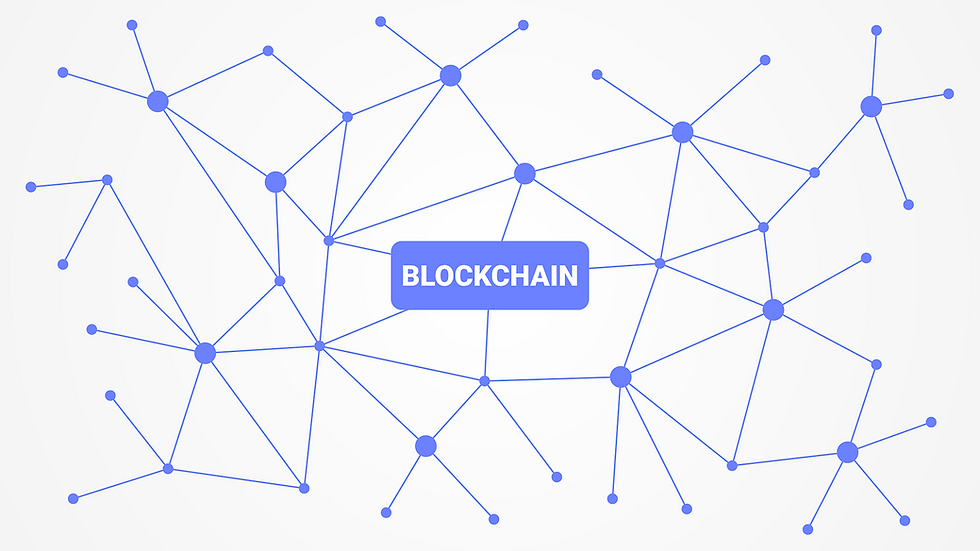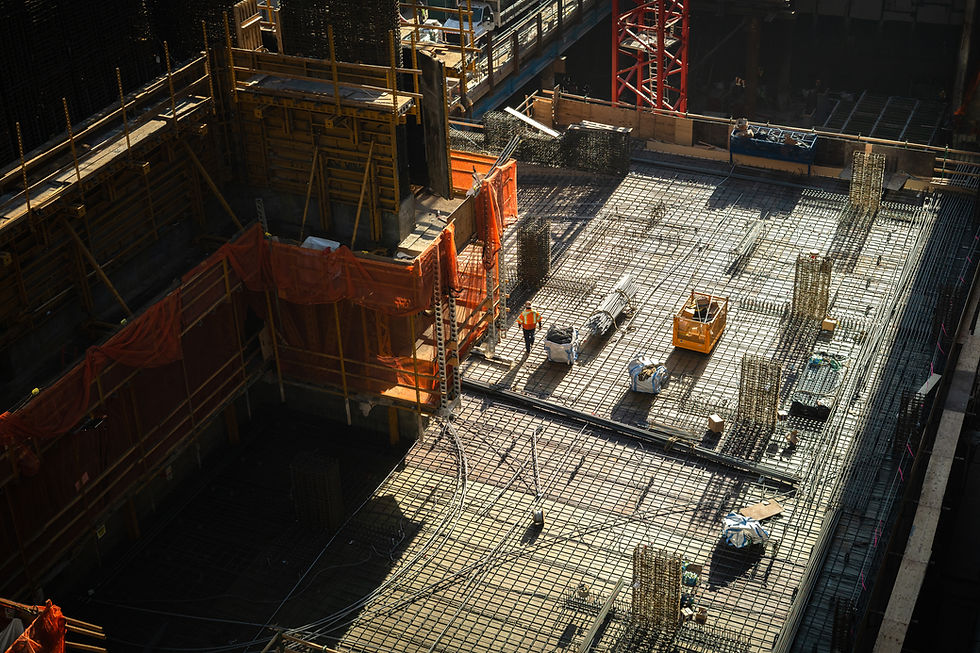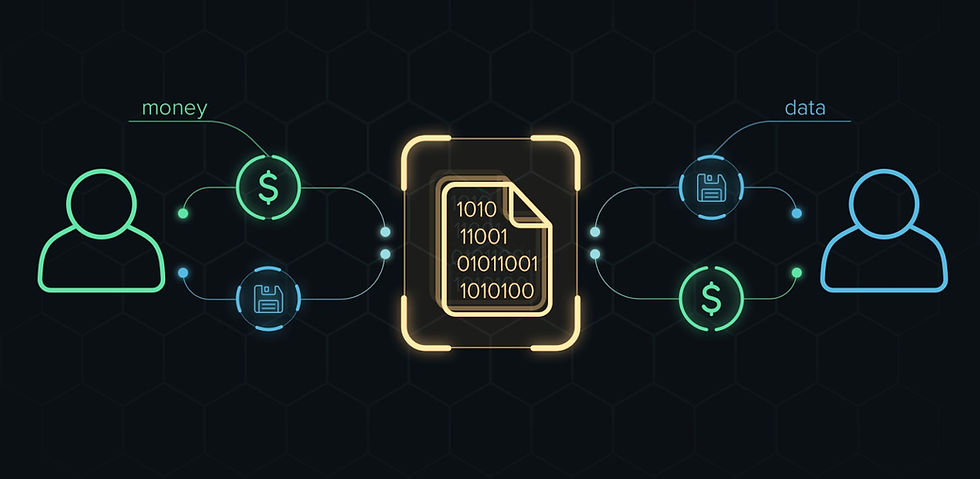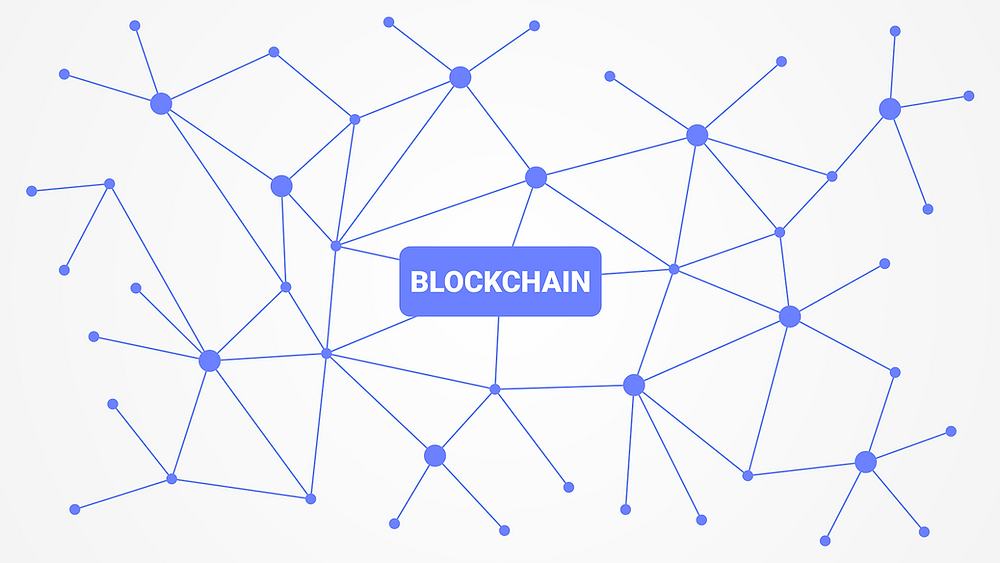By now you may have heard a lot of talk of 'Web3'. If you're not familiar with the term, Web3 refers to a decentralized online ecosystem based on a newer technology called 'blockchain'.
What is Blockchain?
A blockchain is basically a digital ledger of transactions maintained by a network of computers in a way that makes it difficult to hack or alter. The technology offers a secure way for individuals to deal directly with each other, without an intermediary like a government, bank or other third party.
Applications built on the blockchain won’t be owned by a central gatekeeper, but rather by users, who will earn their ownership stake by helping to develop and maintain those services. In other words, instead of data being stored and processed on a central set of servers somewhere, it is handled by a network of computers/contributors aka 'nodes'.

Web3 is what a lot of people believe to be the next evolution of the internet. This evolution is essentially a shift away from a centralized internet to a decentralized one. One of the first and most popular applications that has enabled the use of blockchain technology is cryptocurrency.
But it's important to note that cryptocurrency is not the same thing as blockchain. Cryptocurrency is just one application of blockchain technology, whereas blockchain is the actual underlying technology driving this shift. For simplification purposes, you can compare cryptocurrency to a video calling application (like FaceTime or Zoom), whereas blockchain is the network it uses in order to carry out the video calls.

But before we all start becoming 'believers' in the technology, let's take a step back and ponder some realistic questions about this craze (these questions will likely anger any crypto diehards who read this, so apologies in advance):
Is there a lot of hype behind this technology? Absolutely.
Have there been any scams hidden behind the hype of this technology? Definitely.
Is there a bubble forming around this technology wave? Likely.
So is it all just hype then? Absolutely not. If any one piece of really useful technology advancement were to come out of this craze and last long term, it's blockchain technology.
While cryptocurrency is still facing its struggle toward mainstream adoption (as in, to the point where it's actually useful in the real world and not just a way to make money), other industries have started to explore how this technology can help solve long-lasting problems.
Can Blockchain Be Used in Construction?
Recently, On-Site Magazine published a great article with some thoughts and considerations on the potential of blockchain technology in construction. What I like about this article is that, instead of just jumping on the blockchain/web3 hype train like so many others have done, it actually takes a very objective and realistic viewpoint as to the true potential of the technology's use in the construction industry.

I'll provide a brief summary of the article below, but if you want to read the full article you can check it out here.
Two Useful Applications of Blockchain in Construction
1. Smart Contracts

In my opinion, the most useful application of blockchain technology in the construction industry is the use of smart contracts.
Because blockchain is basically an unquestionable, permanent, and fully-maintained ledger of milestones/activity/transactions, it can serve as an amazing source of truth for construction projects. Instead of one or two parties controlling the nature of the contractors' progress against the project contract, the blockchain allows all parties involved to fully define project milestones and payout conditions for each event in the project's lifecycle before the project even starts.
Furthermore, smart contracts can enable these milestones to trigger self-executing processes such as automatically issuing payments to contractors whenever the stated conditions of the milestones are met. This could eliminate any potential disputes and late payments due to conflicts as all of these conditions are agreed upon during the initial project planning or even budgeting phase. This places more emphasis on a stronger, more honest collaboration amongst all the parties involved in the construction project during the planning stage.
2. Document Management

Another application of blockchain in construction is to use it for document storage and sharing. Just like you can trigger self-executing payments to happen based on milestones achieved on the blockchain record, you can also trigger other self-executing processes like a set of documents to be released when these actions are completed.
The ability to record key information such as the author, time of creation, or versions of documents, can facilitate compliance with legislative or regulatory requirements or a more efficient dispute resolution processes.
A blockchain-driven data and documentation system could help reduce costs related to dealing with legal claims, particularly on larger projects. Using blockchain technology to streamline document management could lead to improved project execution efficiencies and cost savings during disputes.
Personally, while I do see blockchain being used for document storage, there are still many technical hurdles to overcome with the use of blockchain to support this kind of a workflow. The technology still needs time to mature and prove that it can handle this type of interaction in a secure, reliable, and user-friendly way.
Risks of Using Blockchain in Construction
Make no mistake, blockchain has a lot potential, but that doesn't mean we should jump all over it immediately. The technology is still developing, not just in terms of its technical capabilities and architecture, but also in how its being perceived by regulators and different industries.
1. Security

There are still some misconceptions about the security and accuracy of the blockchain, it is still not 100% hack-proof.
Its security depends on the identity of the users as well as on the security of any overlying applications. Transactions are also only as accurate as the “off-chain” information provided to the blockchain in the first place.

2. Regulations

Stakeholders must also be aware of the frequently changing regulatory environment of blockchain technology. Therefore, its benefits and risks must be balanced by those looking to apply the technology to a project contract.
3. Legal

The use of blockchain technology raises a number of legal issues that have yet to be fully flushed out. It still remains unclear exactly how courts would interpret code-based contracts or how errors would be resolved. Lawmakers need to spend more time evaluating the various scenarios that could occur and come up with the right solutions in the context of litigation.
Final Thoughts
Every now and then, a new piece of radical technology comes along that challenges the status quo and forces us to re-think the way we currently do things. Blockchain could be another one of these transformative technologies. Time will tell exactly how valuable blockchain technology can be to various industry verticals including construction.
For now, the most we can say is: stay tuned folks!






